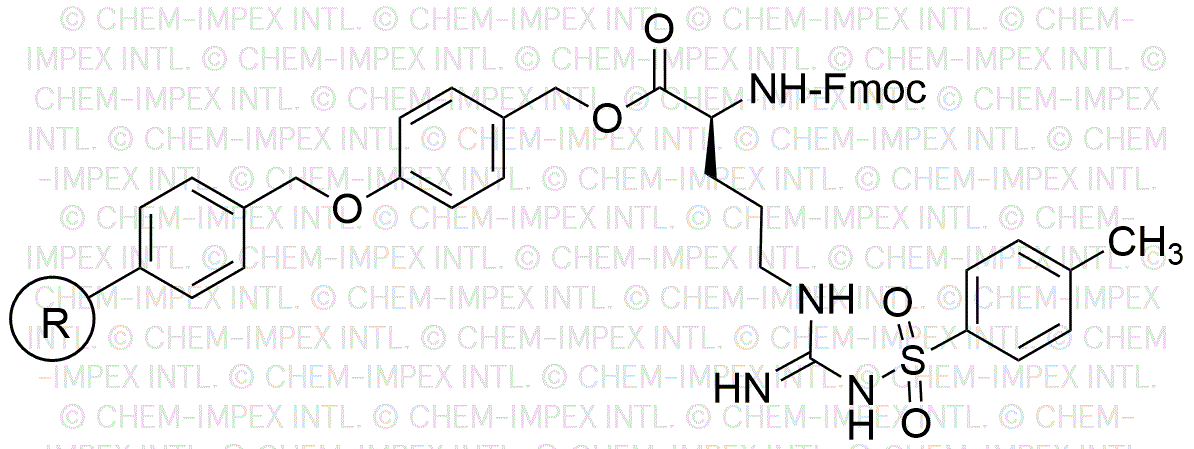Na-Fmoc-Nw-(4-toluenesulfonyl)-L-arginine 4-alkoxybenzyl alcohol resin is widely utilized in research focused on:
- Peptide Synthesis: This resin is crucial for solid-phase peptide synthesis, allowing researchers to create complex peptides efficiently and with high purity.
- Drug Development: Its application in drug discovery helps in the design of peptide-based therapeutics, particularly in targeting specific biological pathways.
- Bioconjugation: The resin facilitates the attachment of peptides to various biomolecules, enhancing the development of targeted drug delivery systems.
- Protein Engineering: Researchers utilize this resin for modifying proteins, enabling the study of protein interactions and functions in a controlled manner.
- Academic Research: It serves as a valuable tool in academic laboratories for teaching and exploring peptide chemistry, fostering innovation in the field.
General Information
Properties
Safety and Regulations
Applications
Na-Fmoc-Nw-(4-toluenesulfonyl)-L-arginine 4-alkoxybenzyl alcohol resin is widely utilized in research focused on:
- Peptide Synthesis: This resin is crucial for solid-phase peptide synthesis, allowing researchers to create complex peptides efficiently and with high purity.
- Drug Development: Its application in drug discovery helps in the design of peptide-based therapeutics, particularly in targeting specific biological pathways.
- Bioconjugation: The resin facilitates the attachment of peptides to various biomolecules, enhancing the development of targeted drug delivery systems.
- Protein Engineering: Researchers utilize this resin for modifying proteins, enabling the study of protein interactions and functions in a controlled manner.
- Academic Research: It serves as a valuable tool in academic laboratories for teaching and exploring peptide chemistry, fostering innovation in the field.
Documents
Safety Data Sheets (SDS)
The SDS provides comprehensive safety information on handling, storage, and disposal of the product.
Product Specification (PS)
The PS provides a comprehensive breakdown of the product’s properties, including chemical composition, physical state, purity, and storage requirements. It also details acceptable quality ranges and the product's intended applications.
Certificates of Analysis (COA)
Search for Certificates of Analysis (COA) by entering the products Lot Number. Lot and Batch Numbers can be found on a product’s label following the words ‘Lot’ or ‘Batch’.
*Catalog Number
*Lot Number
Certificates Of Origin (COO)
This COO confirms the country where the product was manufactured, and also details the materials and components used in it and whether it is derived from natural, synthetic, or other specific sources. This certificate may be required for customs, trade, and regulatory compliance.
*Catalog Number
*Lot Number
Safety Data Sheets (SDS)
The SDS provides comprehensive safety information on handling, storage, and disposal of the product.
DownloadProduct Specification (PS)
The PS provides a comprehensive breakdown of the product’s properties, including chemical composition, physical state, purity, and storage requirements. It also details acceptable quality ranges and the product's intended applications.
DownloadCertificates of Analysis (COA)
Search for Certificates of Analysis (COA) by entering the products Lot Number. Lot and Batch Numbers can be found on a product’s label following the words ‘Lot’ or ‘Batch’.
*Catalog Number
*Lot Number
Certificates Of Origin (COO)
This COO confirms the country where the product was manufactured, and also details the materials and components used in it and whether it is derived from natural, synthetic, or other specific sources. This certificate may be required for customs, trade, and regulatory compliance.

